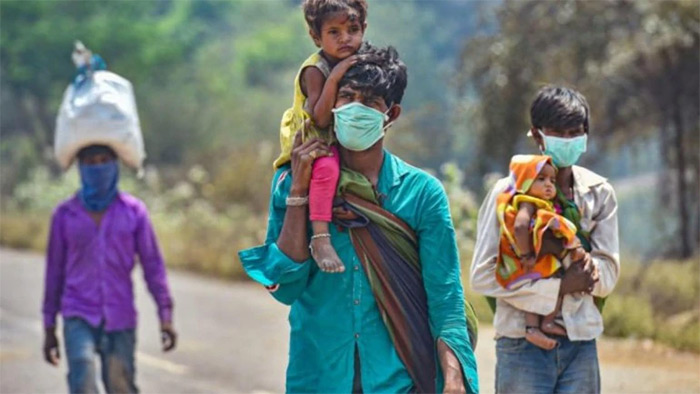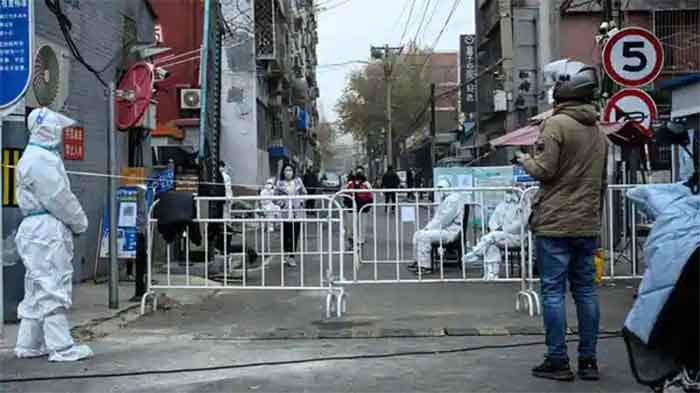Is something as basic as being with your loved ones and being able to maintain social distancing a privilege in this pandemic?

Walking for miles in the scorching heat of May, with minimal water and food to reach a place that would make one feel a little more comfortable than the rest of the world, a place we all call home, this is a usual day of a migrant worker covering a vast distance to reach their hometowns. Covid-19 has turned out to be a huge challenge for everyone around the world. The pandemic has made all lives stand on a still with no clue of what the future holds for them. While countries are doing their best to fight a war with this virus, there are a few sections of the society that are not fortunate enough to be able to spend time with their families in this difficult time.
Vulnerable groups and socio-economic minorities including migrant workers have always been there in this country, carrying their poverty ridden, unfortunate aura within the lighting of our giant cities but their magnitude has only been recently acknowledged by most. These are the sections of the society that are worst hit by this virus because not just they’re in the fear of losing their lives but also scared of being distant from their loved ones. They are afraid to lose their sources of income which helps them in feeding their entire families. While India announced the country’s first lockdown, post the spread of the virus, to be implemented within 24 hours; the workers living away from their hometowns did not get enough time to go back and that in turn led to an unrest in the country amongst them. Since then, we’ve been seeing and hearing harsh realities of the lives of thousands and thousands of migrant workers looking for ways to reach home. The images are much worse than they look, and we need to see beyond this mirage of calling it a mere ‘crisis’, because innocent people, in the wake of hasty decisions backed by poor planning are losing their lives and livelihoods.
While the government made arrangements to bring back the people stranded abroad back through flights, these workers are not just being made to wait for days until they get a chance to travel in the Special Shramik trains but there were a large number claiming that they were made to pay the same and in some cases even more than the amount of the ticket (even after the centre announced that the government will be paying for the tickets of workers being transported).
Due to this, some walked all the way on foot, as we see images of their blistered feet in the media as horrifying imagery of the ground reality in managing this crisis. Many others relied on transportations ranging from cycles and auto-rickshaws to trucks – loaded like goods. The death of these workers has only been increasing due to varying reasons other than the virus, from 16 workers run over in Maharashtra due to sleeping on the train tracks to 25 of them dying of a truck accident in UP’s Auraiya. The plight of these workers and the havoc in the lives of their families is inexpressible, and far long lasting than any virus.
This makes one wonder, if it is a privilege to be able to maintain social distancing and keep mental health in check while some citizens of our own country are quarantined in centres where even basic rights like sanitation and healthy food are not given properly. While, the government has laid out a plan to help these workers, there is a need for a direct redressal to them and an active participation of the officials in making the living conditions in quarantine centers better. The government should try and rectify the mishaps until now and look for better ways to help these workers overcome their plight.
Sanskriti Falor is a third-year Journalism student at Kalindi College, Delhi University
SIGN UP FOR COUNTERCURRENTS DAILY NEWS LETTER















































